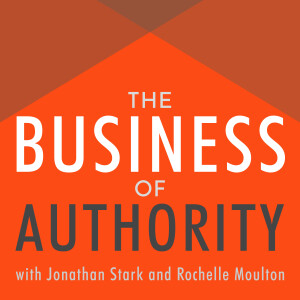
Why, if you’re not feeling like an imposter, you’re not “working hard enough” (a Seth Godin quote from episode 100).
Facing the fear—and the resistance—and moving beyond a self-limiting label.
How working to become an expert can raise imposter feelings (and what to do).
Shifting your mindset to treat your work as an experiment.
The benefits of focusing on the people you’re serving vs. your own fears and resistance.
Quotables
“If we could deconstruct what people mean when they say imposter syndrome…it's like fake. I'm a fake, because I don't know if this is going to work or I don't know if this is the right way to do it. I don't know how to do this thing.”—JS
“The thing is it's really tempting to say, ‘Oh, I have imposter syndrome. I just can't do that.’ And so I don't like the label.”—RM
“If this sounds like tough love at all, it is because we don't want you in 10 years to be still stuck in the same place.”—JS
“The signal you’re becoming an expert is when you realize that you couldn't possibly know everything: ‘How do I niche down in the area of expertise that’s most intriguing? How do I think about this?’”—RM
“Imposter syndrome is probably that you don't know if it's going to work. You're doing an experiment. It's not like scientists are imposters because they don't know what's going to happen at the end of the experiment.”—JS
“The second we turn our focus away from ourselves and onto the audience, everything's easier. Because you're focused on them and getting them the things that they want.”—RM
“You're not here to be perfect or better than someone else—you're here to help. And if you focus on that, you don't have to be perfect. You just need to be good enough.”—JS
“Maybe it's work it till you make it instead of fake it till you make it.”—RM
Links
The Imposter Cure
The Imposter Syndrome
The Middle Finger Project
More Episodes
 2024-04-22
2024-04-22
 2024-04-15
2024-04-15
 2024-04-01
2024-04-01
 2024-03-25
2024-03-25
 2024-03-18
2024-03-18
 2024-03-11
2024-03-11
 2024-03-04
2024-03-04
 2024-02-26
2024-02-26
 2024-02-19
2024-02-19
 2024-02-05
2024-02-05
 2024-01-29
2024-01-29
 2024-01-22
2024-01-22
 2024-01-15
2024-01-15
 2024-01-08
2024-01-08
 2024-01-01
2024-01-01
 2023-12-11
2023-12-11
 2023-12-04
2023-12-04
 2023-11-27
2023-11-27
Create your
podcast in
minutes
- Full-featured podcast site
- Unlimited storage and bandwidth
- Comprehensive podcast stats
- Distribute to Apple Podcasts, Spotify, and more
- Make money with your podcast
It is Free
- Privacy Policy
- Cookie Policy
- Terms of Use
- Consent Preferences
- Copyright © 2015-2024 Podbean.com






